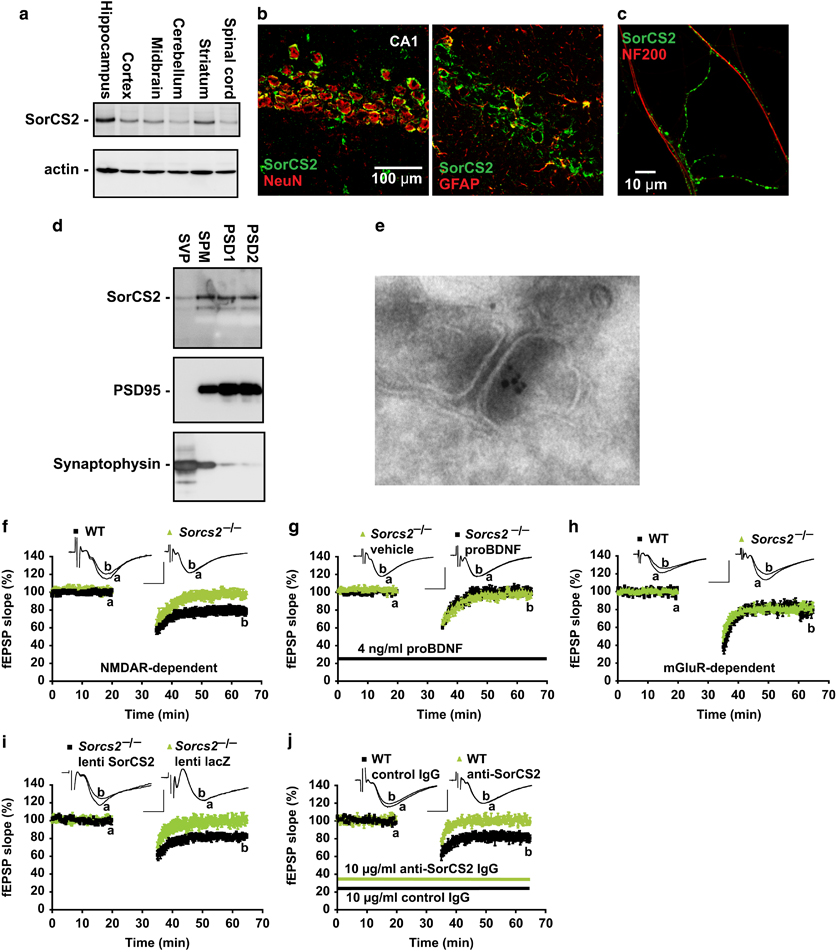New publication from Anders Nykjær's group - SorCS2 is required for BDNF-dependent plasticity in the hippocampus
SorCS2 is a member of the Vps10p-domain receptor gene family receptors with critical roles in the control of neuronal viability and function. Several genetic studies have suggested SORCS2 to confer risk of bipolar disorder, schizophrenia and attention deficit-hyperactivity disorder. Here we report that hippocampal N-methyl-d-aspartate receptor-dependent synaptic plasticity is eliminated in SorCS2-deficient mice. This defect was traced to the ability of SorCS2 to form complexes with the neurotrophin receptor p75NTR, required for pro-brain-derived neurotrophic factor (BDNF) to induce long-term depression, and with the BDNF receptor tyrosine kinase TrkB to elicit long-term potentiation. Although the interaction with p75NTR was static, SorCS2 bound to TrkB in an activity-dependent manner to facilitate its translocation to postsynaptic densities for synaptic tagging and maintenance of synaptic potentiation. Neurons lacking SorCS2 failed to respond to BDNF by TrkB autophosphorylation, and activation of downstream signaling cascades, impacting neurite outgrowth and spine formation. Accordingly, Sorcs2-/- mice displayed impaired formation of long-term memory, increased risk taking and stimulus seeking behavior, enhanced susceptibility to stress and impaired prepulse inhibition. Our results identify SorCS2 as an indispensable coreceptor for p75NTR and TrkB in hippocampal neurons and suggest SORCS2 as the link between proBDNF/BDNF signaling and mental disorders.

